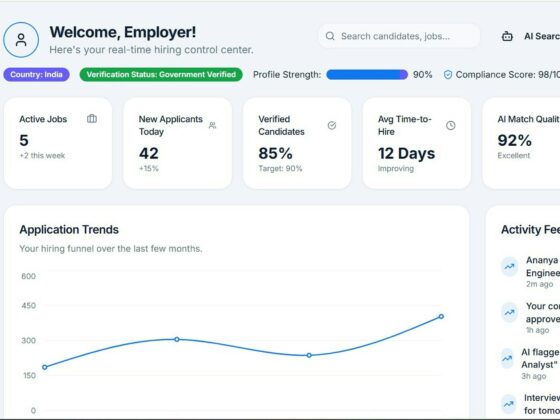
Listen to more stories on the Noa app.
There’s a lesson I once learned from a CEO—a leader admired not just for his strategic acumen but also for his unerring eye for quality. He’s renowned for respecting the creative people in his company. Yet he’s also unflinching in offering pointed feedback. When asked what guided his input, he said, “I may not be a creative genius, but I’ve come to trust my taste.”
That comment stuck with me. I’ve spent much of my career thinking about leadership. In conversations about what makes any leader successful, the focus tends to fall on vision, execution, and character traits such as integrity and resilience. But the CEO put his finger on a more ineffable quality. Taste is the instinct that tells us not just what can be done, but what should be done. A corporate leader’s taste shows up in every decision they make: whom they hire, the brand identity they shape, the architecture of a new office building, the playlist at a company retreat. These choices may seem incidental, but collectively, they shape culture and reinforce what the organization aspires to be.
Taste is a subtle sensibility, more often a secret weapon than a person’s defining characteristic. But we’re entering a time when its importance has never been greater, and that’s because of AI. Large language models and other generative-AI tools are stuffing the world with content, much of it, to use the term du jour, absolute slop. In a world where machines can generate infinite variations, the ability to discern which of those variations is most meaningful, most beautiful, or most resonant may prove to be the rarest—and most valuable—skill of all.
I like to think of taste as judgment with style. Great CEOs, leaders, and artists all know how to weigh competing priorities, when to act and when to wait, how to steer through uncertainty. But taste adds something extra—a certain sense of how to make that decision in a way that feels fitting. It’s the fusion of form and function, the ability to elevate utility with elegance.
Think of Steve Jobs unveiling the first iPhone. The device itself was extraordinary, but the launch was more than a technical reveal—it was a performance. The simplicity of the black turtleneck, the deliberate pacing of the announcement, the clean typography on the slides—none of this was accidental. It was all taste. And taste made Apple more than a tech company; it made it a design icon. OpenAI’s recently announced acquisition of Io, a startup created by Jony Ive, the longtime head of design at Apple, can be seen, among other things, as an opportunity to increase the AI giant’s taste quotient.
Taste is neither algorithmic nor accidental. It’s cultivated. AI can now write passable essays, design logos, compose music, and even offer strategic business advice. It does so by mimicking the styles it has seen, fed to it in massive—and frequently unknown or obscured—data sets. It has the power to remix elements and bring about plausible and even creative new combinations. But for all its capabilities, AI has no taste. It cannot originate style with intentionality. It cannot understand why one choice might have emotional resonance while another falls flat. It cannot feel the way in which one version of a speech will move an audience to tears—or laughter—because it lacks lived experience, cultural intuition, and the ineffable sense of what is just right.
This is not a technical shortcoming. It is a structural one. Taste is born of human discretion—of growing up in particular places, being exposed to particular cultural references, developing a point of view that is inseparable from personality. In other words, taste is the human fingerprint on decision making. It is deeply personal and profoundly social. That’s precisely what makes taste so important right now. As AI takes over more of the mechanical and even intellectual labor of work—coding, writing, diagnosing, analyzing—we are entering a world in which AI-generated outputs, and the choices that come with them, are proliferating across, perhaps even flooding, a range of industries. Every product could have a dozen AI-generated versions for teams to consider. Every strategic plan, numerous different paths. Every pitch deck, several visual styles. Generative AI is an effective tool for inspiration—until that inspiration becomes overwhelming. When every option is instantly available, when every variation is possible, the person who knows which one to choose becomes even more valuable.
This ability matters for a number of reasons. For leaders or aspiring leaders of any type, taste is a competitive advantage, even an existential necessity—a skill they need to take seriously and think seriously about refining. But it’s also in everyone’s interest, even people who are not at the top of the decision tree, for leaders to be able to make the right choices in the AI era. Taste, after all, has an ethical dimension. We speak of things as being “in good taste” or “in poor taste.” These are not just aesthetic judgments; they are moral ones. They signal an awareness of context, appropriateness, and respect. Without human scrutiny, AI can amplify biases and exacerbate the world’s problems. Countless examples already exist: Consider a recent experimental-AI shopping tool released by Google that, as reported by The Atlantic, can easily be manipulated to produce erotic images of celebrities and minors.
Good taste recognizes the difference between what is edgy and what is offensive, between what is novel and what is merely loud. It demands integrity.
Like any skill, taste can be developed. The first step is exposure. You have to see, hear, and feel a wide range of options to understand what excellence looks like. Read great literature. Listen to great speeches. Visit great buildings. Eat great food. Pay attention to the details: the pacing of a paragraph, the curve of a chair, the color grading of a film. Taste starts with noticing.
The second step is curation. You have to begin to discriminate. What do you admire? What do you return to? What feels overdesigned, and what feels just right? Make choices about your preferences—and, more important, understand why you prefer them. Ask yourself what values those preferences express. Minimalism? Opulence? Precision? Warmth?
The third step is reflection. Taste is not static. As you evolve, so will your sensibilities. Keep track of how your preferences change. Revisit things you once loved. Reconsider things you once dismissed. This is how taste matures—from reaction to reflection, from preference to philosophy.
Taste needs to considered in both education and leadership development. It shouldn’t be left to chance or confined to the arts. Business schools, for example, could do more to expose students to beautiful products, elegant strategies, and compelling narratives. Leadership programs could train aspiring executives in the discernment of tone, timing, and presentation. Case studies, after all, are about not just good decisions, but how those decisions were expressed, when they went into action, and why they resonated. Taste can be taught, if we’re willing to make space for it.







